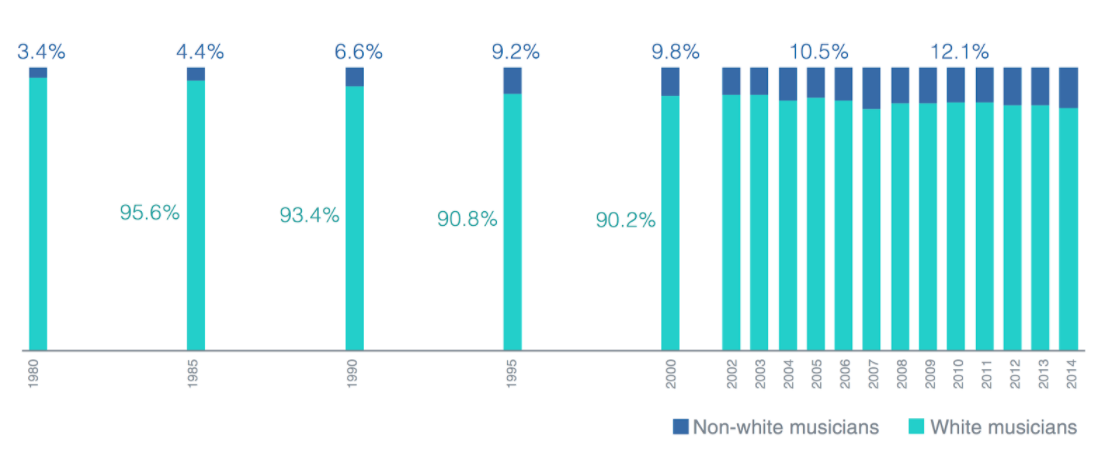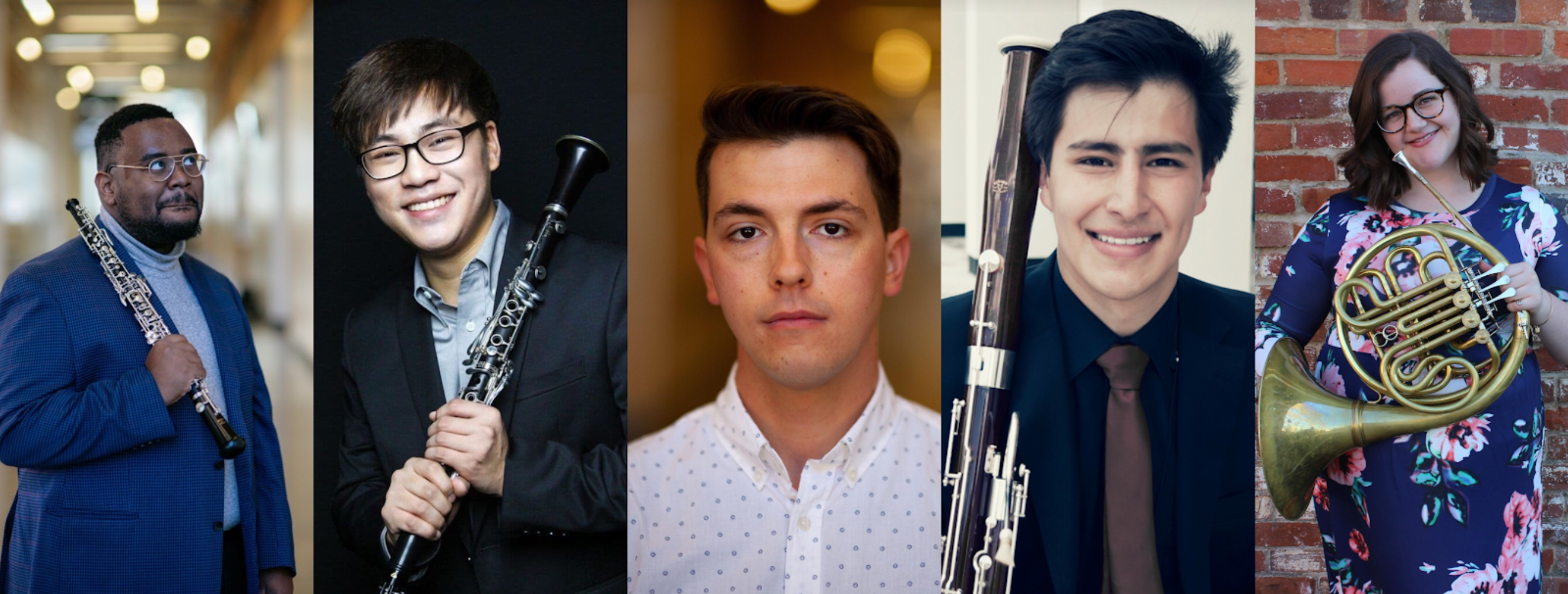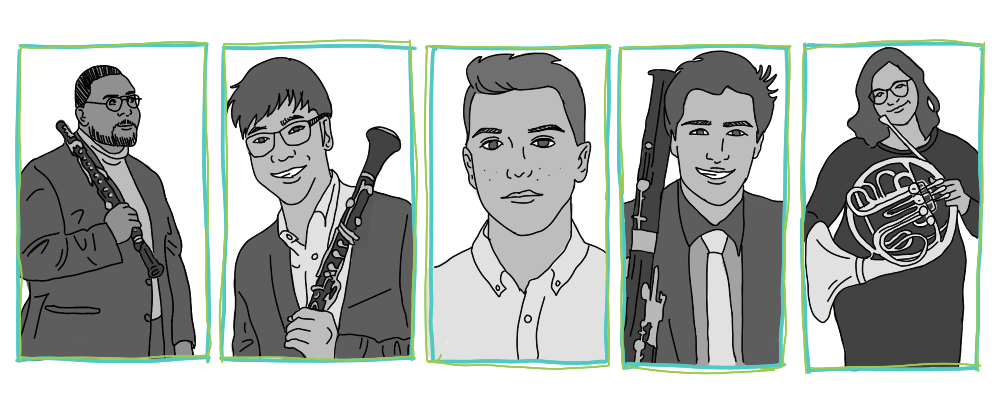Music is often considered to be a pastime or form of entertainment; however, music students are taking initiatives using their music to push for social change.
Because of COVID-19 and the recent nationwide Black Lives Matter uprisings, social justice issues have been at the forefront of today’s culture and media intake. With exposure to these issues being so readily available via social media and other outlets, students are eager to be a part of the change.
DePaul School of Music students Hannah-Grace Mowery and Lauryn Nelson are both supporters of the Black Lives Matter Movement and wanted to take initiatives into their own hands using the tool they love most –– music. They hosted a virtual benefit concert for the NAACP Legal Defense Fund (LDF) and the COVID-19 African American Relief Fund.
The problems being put upon the Black community are “never-ending, and perpetuated by our systemic problems,” said Mowery when discussing why she was inspired to hold the event. “I felt hopeless and just wanted to do anything I could to help.”
The benefit concert, “Beautiful Resistance: An Outcry for Justice,” was streamed on Facebook and the group asked those in attendance to donate to their GoFundMe page. The concert had a goal to raise $1,725 but exceeded it by raising $1,775.
“Beautiful Resistance: An Outcry for Justice” was originally scheduled to take place on Juneteenth to celebrate the day of emancipation of African Americans who had been enslaved; however, due to technical difficulties the concert was postponed to June 20.
The concert had 14 performing acts that covered different “types of music like Black American music (jazz), classical, ragtime, gospel, musical theater, and hip hop,” according to the Facebook page event. The concert “wasn’t about [us musicians], but rather about listening to the stories Black composers were telling,” Mowery said.
DePaul vocalist Marieke de Koker was happy to make her voice heard. “It gave me the chance to do something, to contribute to the movement with a part of myself, to give a voice to Black composers,” she said.
De Koker believes that there are many ways to push for diversity in music. “It is also my mission to help give opportunities to talented people in impoverished areas,” she said.

Courtesy of League of American Orchestras
Similarly, Alayna Bell, a graduate student at DePaul, is a part of the Shades Wind Quintet, a group that promotes diversity in classical music. According to a report by the League of American Orchestras, roughly 12 percent of musicians in orchestras are people of color, making the lack of diversity in classical music something to notice.
When Bell and her colleagues founded the quintet during their undergraduate studies at Columbus State University, they focused on using the diversity of the group as their brand. “When we decided to form our group, we were working to make our name, Shades, our brand,” says Bell. “That brand was founded on the varying shades of our group. Our diversity was something we all felt passionate to make a part of our mission moving forward.”
The Shades Wind Quintet is planning on including works by composers of color on their next recording project to help show that composers of color do exist but are often overlooked. Additionally, the group plans to continue to include diverse communities on their next tour to further enhance their program.

The members of Shades Wind Quintet, including DePaul graduate student and horn player Alayna Bell (far right). Courtesy of Shades Wind Quintet
Bell and the Shades Wind Quintet state that they believe that education can play a big role in bringing diversity into classical music. This can be done by “making a musician’s classical training more diverse by including people of color in music curriculum (history, ensemble repertoire, etc.), and highlighting more diverse faculty, performers, and leaders in our field,” said Bell in an email.
“Our diversity was something we all felt passionate to make a part of our mission moving forward.”
Students at the School of Music have created a Student Coalition of Diversity. The Coalition is fighting to provide an environment that includes all in the music community to make changes that will uplift all students.
One of the ways that the Coalition is promoting their mission is by sending a Vote of No Confidence letter to President A. Gabriel Esteban and the Office of the Provost, according to the Coalition’s Instagram page. The letter will be calling for the dismissal of the School of Music’s dean, Ronald Caltabiano, a new position for a chair of diversity in the School of Music, and the renaming of the Jazz Studies department to the Department of Black American Music. Additionally, a DePaul School of Music Alumni Coalition for Advancement of Diversity and Inclusion has been meeting via Zoom finding ways to advocate for diversity.
With these strides, music students are hoping to bring more diverse experiences and awareness to their own education. These social justice and diversity initiatives would, in turn, help change the idea that of music is just a pastime or form of entertainment –– and like articles in the Baltimore Sun and Insight Into Diversity argue –– could save and revive the classical music industry, making it a genre of music to keep a closer eye on in coming years.
Header illustration by Phoebe Nerem




NO COMMENT